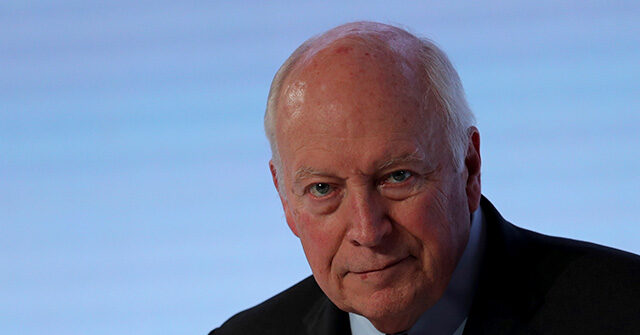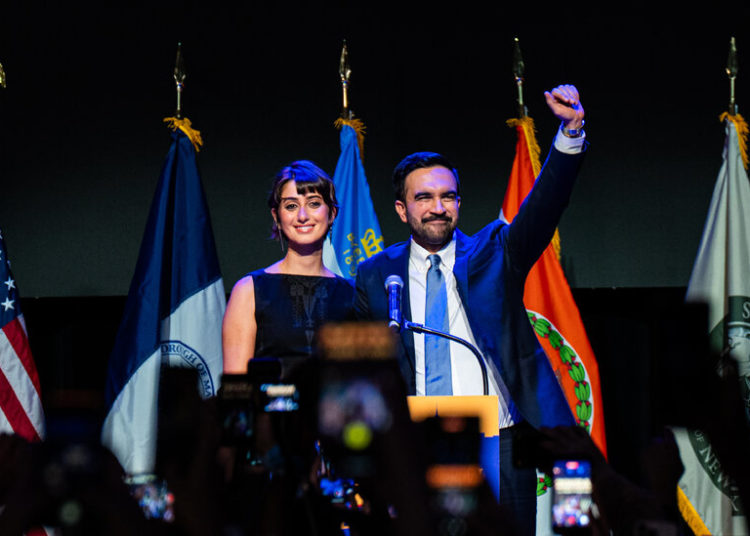Former Vice President Dick Cheney was eulogized on Tuesday by his running mate, former President George W. Bush, as a “calm and steady presence” and “among the finest public servants of his generation.”
Cheney built long lists of both admirers and adversaries during his years in politics, a career that went from him growling at reporters to stop calling him a “moderate” to endorsing Kamala Harris over Donald Trump in the 2024 presidential election.
The Washington Post on Tuesday remembered Cheney peevishly telling an aide to “call the Post and tell them I’m a conservative” after the paper described him as a “moderate” during his days as a congressman from Wyoming. Cheney, and later his daughter Liz, have been very insistent upon describing themselves as the metaphysical center of conservatism.
“Calm” is the word most often associated with Cheney after his death on Tuesday at age 84, but once upon a time, another word was branded upon him by the media with comical fervor: “gravitas.” The media narrative of Cheney’s ascent to the vice presidency was that he supposedly added “gravitas” to a ticket headed by the boyish and goofy George W. Bush.
“Mr. Cheney’s most obvious asset as a running mate is that he could provide an instant gravitas injection for a ticket headed by Governor Bush. Given Mr. Cheney’s role in running the gulf war, his presence would shore up Mr. Bush in his weakest areas, foreign policy and national security,” the New York Times said in 2000, setting the tone for media coverage of Cheney’s role in the Bush campaign.
Another label the Left liked to slap on Cheney was “evil.” His redemption in the eyes of the Left for claiming “there has never been an individual who was a greater threat to our republic than Donald Trump” and calling Trump a “coward” in a political ad for his daughter, Rep. Liz Cheney (R-WY), was surely the strangest of the Strange New Respect awards handed out by left-wing media, considering that Dick Cheney was routinely compared to Darth Vader and Satan during his vice presidency. Hollywood turned him into an inhuman supervillain, a rapacious oil baron who started wars to line his own pockets.
Cheney was involved in politics, business, and the intersection between the two for a very long time, so some of the seeming paradoxes and contradictions in his long career were a result of the political pendulum swinging, the world changing around him. His entry into public service came during the Nixon Administration. He was a deputy assistant to President Gerald Ford, Secretary of Defense for the elder President Bush, and then vice president to the younger. The world changed a great deal around him during those years – in no small part because of decisions he made and advice he gave.
The War on Terror under George W. Bush was the defining event of Dick Cheney’s career. Those were the years that crystallized the Left’s hatred of him as a warmonger. In the years afterward, as a growing segment of the Republican electorate came to see the wars in Iraq and Afghanistan as expensive follies, Cheney’s star among conservatives began to sink. Cheney was far too intelligent to be surprised by this, but he did not seem to like it very much. The animosity between Cheney and Trump Republicans was mutual.
The new breed of Republicans who found themselves at odds with Dick Cheney could take a moment to understand the figure he cut as vice president – a man of steely determination and tremendous political skill during a time of fear and confusion after 9/11. Conservatives of a certain age can remember a time when we very much wanted Darth Vader in the White House.
Another word used in every Cheney eulogy is “powerful.” The vice presidency is a job often mocked for its ceremonial and ineffective nature. Friend and foe alike regard Cheney as one of the most powerful vice presidents to ever hold the office, and not just because he had President George W. Bush’s ear. He got things done. He went into political negotiations with a strong hand. He was good at handling hostile press. In his hour of power, Cheney demonstrated many of the qualities that today’s Republicans admire.
Cheney was the “architect” of the Iraq War – another word you’ll see a lot of today! – and that particular exercise of power is not as popular among Republican voters as it once was. The relationship between Republicans and their political elites has changed profoundly over the past two decades, and the War on Terror is a key factor in that change. Cheney was the face of the war, so he has taken a lot of the heat for it.
It is a sad irony that Cheney ended his time in politics by endorsing Kamala Harris, who was absolutely no one’s idea of a powerful, effective, or intelligent vice president. The Cheney family’s political calculations are their own to explain or defend, but for what it’s worth, the elderly Cheney seemed genuinely horrified by the events of January 6, perhaps seeing them as an assault on the system he devoted much of his long life to serving and protecting.
The media is remembering Cheney today as “divisive” and “controversial,” which is what they say about every Republican. It’s more true of Cheney than most because he had a hand in events that have shaped the modern world, for good and ill.
Republicans, Democrats, and America itself have changed a great deal since Dick Cheney signed on with the Nixon Administration. His career demonstrated how yesterday’s moderate becomes today’s extremist, and yesterday’s conservative icon can become today’s Kamala Harris voter.
The post Dick Cheney’s Complex Legacy: From ‘Powerful,’ Transformative VP to Iraq War Architect to Feeble Kamala Backer appeared first on Breitbart.




